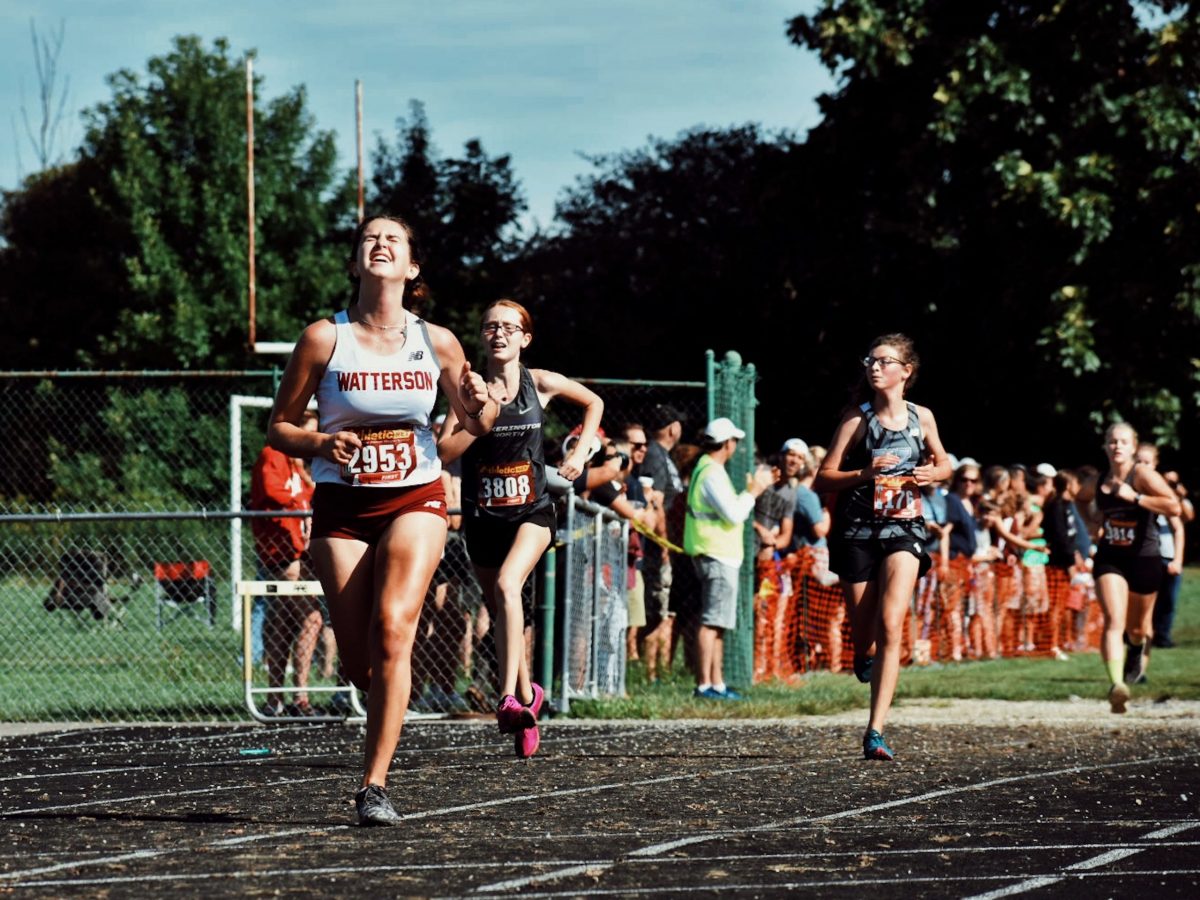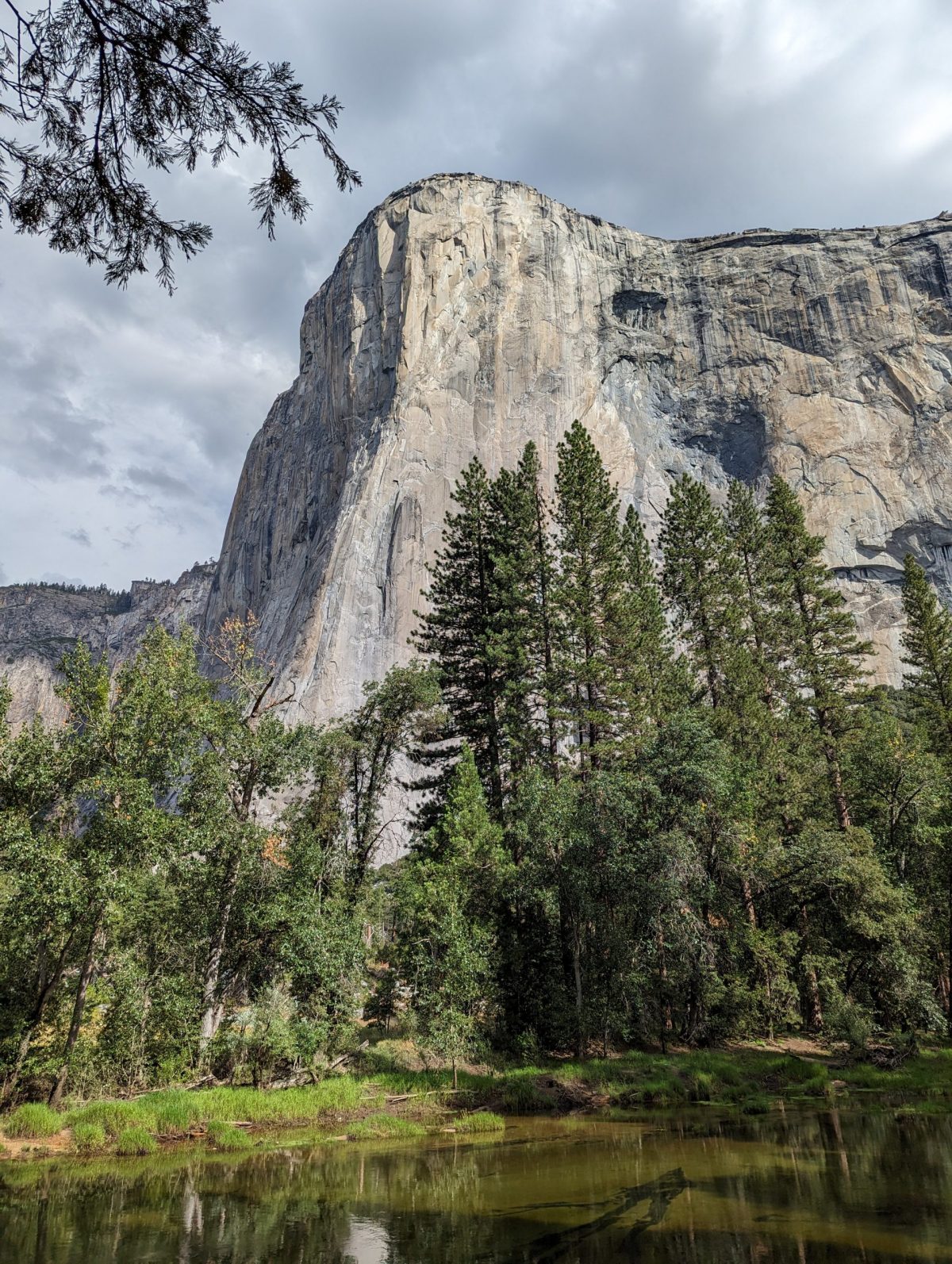I woke up 5.30am this Sunday. Ready for the London Marathon. Heart pumping. Surely, it’s the best marathon in the world? I’m sure you know somebody who took part? Maybe you watched the marathon from the London streets, or maybe you watched the highlights from the comfort of your sofa?
It was going to be the biggest ever in terms of finishers. Maybe there would be some records broken? What time was I aiming for? Thanks for asking, but the best thing was I wasn’t going to have to run it! No having to forcing sickly sweet blackcurrant gels down my throat. No bright pink £200 bouncy trainers. No need to smear myself from head to toe with Vaseline. No need to focus on my breath or pace. No need to suffer, suffer, suffer. No need to die, die, die. No need to push, push, push through the pain cave. I have run it three times before and was delighted to be on the sidelines this time.
Despite the early morning cold fog as I cycled to the start line, I knew it was going to be a sizzling day. I knew how much it would hurt those brave runners as they soldiered on through the sweltering afternoon city heat, slowly cooking, burning, melting. I had it easy. I was simply volunteering on one of the baggage trucks. All the fun of a marathon vibe, with none of the running. I was going to be a tiny cog in the logistical monster of this feel-good global event. I was going to help make sure that each of the 56,000 runners finished up with their valuables. Well, at least I was going to try and help a few of them. This was a nice distraction from my day job as a psychotherapist…but also strangely similar.
Psychotherapy and emotional baggage
As a psychotherapist, you could say, I help people with their “baggage”. I see lost cases, damaged cases, shiny cases, half-open cases, and tightly locked cases. Sometimes there are cases everyone leaps for off the baggage belt at the airport, and sometimes there are cases that nobody picks up. They just go around and around.
I examine the content of these cases, looking for interesting material. In the marathon, runners must use regulation see through plastic bags. But we can’t just peer into someone’s insides. We must get through a tough protective outer casing. Security locks, polythene wrapping, padlocks.
We can’t break into cases. We must get the patient to remember the codes. How can we help the patient feel comfortable enough to unlock some of this material in our company? Sometimes it can take five minutes; sometimes five years.
I look for clues in the content, and how it is arranged. Patients sometimes literally leave things behind in the consulting room. More often, they might wish to store some of their emotional baggage in my psychological storage facilities. I don’t have a truck, but I need to make sure I keep a space in my mind to provide adequate storage facilities.
The baggage truck
I arrived at Blackheath early, as instructed. The first thing I learned was this was a serious business. Our leader Emily, a seasoned volunteer, was clear: “Check the bag number matches the bib number on the runner’s vest. Make sure they tie bags up properly. Once you get a bag, don’t let the runner have it back! You won’t have time to go searching for their bags amongst the huge piles. You will be inundated. At 9.15am it will be chaos. The trucks will be leaving. Just take the bags. Once the trucks leave that’s it.”
Some of our group stepped into the trucks and donned a harness to keep them secure as the moved about with the luggage. When we are handling other people’s luggage, we can trip, and fall. I stood closer to the runners and took bags to pass up or throw to my fellow volunteers on the truck.
The early runner and spooky happenings
There were a few super organised runners who wanted to leave their bag with us at 7am. They were dressed in charity clothes, which they would later discard, to keep warm for the start. One man was dressed in a white synthetic outfit. He looked like he had travelled in from another galaxy. He explained he had bought a disposable painter’s overall. It was light weight, warm.
These early types were conscientious, they were planners. They had clearly considered every detail. Controlled every controllable. Read every book, digested every forum, and thought through the race before running it. This reminded me of my running friend Claire Steward. I caught up with her over a coffee post-marathon. Her attention to detail is staggering and her results and numbers are often spooky. Einstein talked of quantum entanglement as being the answer to the universe’s riddles. Claire is a living example of marathon entanglement. She is 71. She ran her first marathon aged 51 and this was her 51st marathon. She completed it in 4.44.44. She has mild COPD and was advised to have a double knee replacement five years ago. Her marathon data is a snapshot of her precise psyche!
The late runner and chaos
As I took the bags, I made small talk with the thronging runners. Have you tied your laces? What’s the race plan? Will you sprint the last 100 yards for me? Have you applied sun cream? What time are you aiming to run in? The runners were chatty. “I’ll run it in 2.48!”, “Just want to enjoy it.”
A few runners started to ask me for their bags back. They had wanted to take out earphones, or put earphones back, or find a piece of kit. I was a soft touch, and managed to work with my fellow volunteer to let them have their bags back. It reminded me of psychotherapy. There are moments when a patient hands something over to the therapist, for consideration, or contemplation. But then the patient may want it back, to examine it themselves in their own mind. They may need it back for a few minutes, or longer. Of course, in psychoanalytic work whilst the therapist may help with interpretations, it is the patient who must come to their own conclusion.
Carrying the big black bag
James, a young man, approached me with a big black rucksack. He was hoping that his parents would have taken this from him, but due to train issues, they hadn’t been able to meet him. Normally, that would mean he would have to leave the rucksack at the recycling facilities. It was like he was being prised from a living, breathing thing. I imagined all the journeys he had shared with his big black well-used rucksack. I caved in. I put myself in his shoes. I told him I could take his empty rucksack for safe keeping and that he could collect if from me in the future. We swapped numbers. He seemed palpably relieved. I put my own smaller rucksack into his enormous one and carried it about with me for the rest of the day. James, please call me or text me to pick it up! As a therapist, we might carry baggage for decades. Sometimes am old patient calls us out of the blue. We find we can always find their case, usually in pristine condition, and hand it back to them.
The sprint, the end
Towards the end of the day, people started to panic. They hadn’t left enough time and were getting changed in front of the baggage trucks! Gels, phones, socks, hoodies, fancy dress costumes were flying in all directions. We were no longer able to carefully sort and put bags in the exact numerical sections. MOVE IT. NOW! THE TRUCK IS GOING! The tempo and energy levels shot up. Runners sprinted to the truck from all directions. I was now taking on baggage, but with less care and attention. I was throwing it on to the truck with wild abandon. I was wondering if this was akin to working at an airline desk before a flight is about to leave. I had to give some people bad news that the trucks would be leaving without their baggage.
Chaos. Excitement. The finish line. The end of the session. The baggage handlers are not here forever. Some patients like to finish the session a few minutes early; some like to run over. Some bring super-size baggage, some only carry hand baggage. As therapists we must weigh it all up and handle with care. So next time you’re in the consulting room, have a think about type case you are. Get your code or keys ready, and take a chance, open that case!

